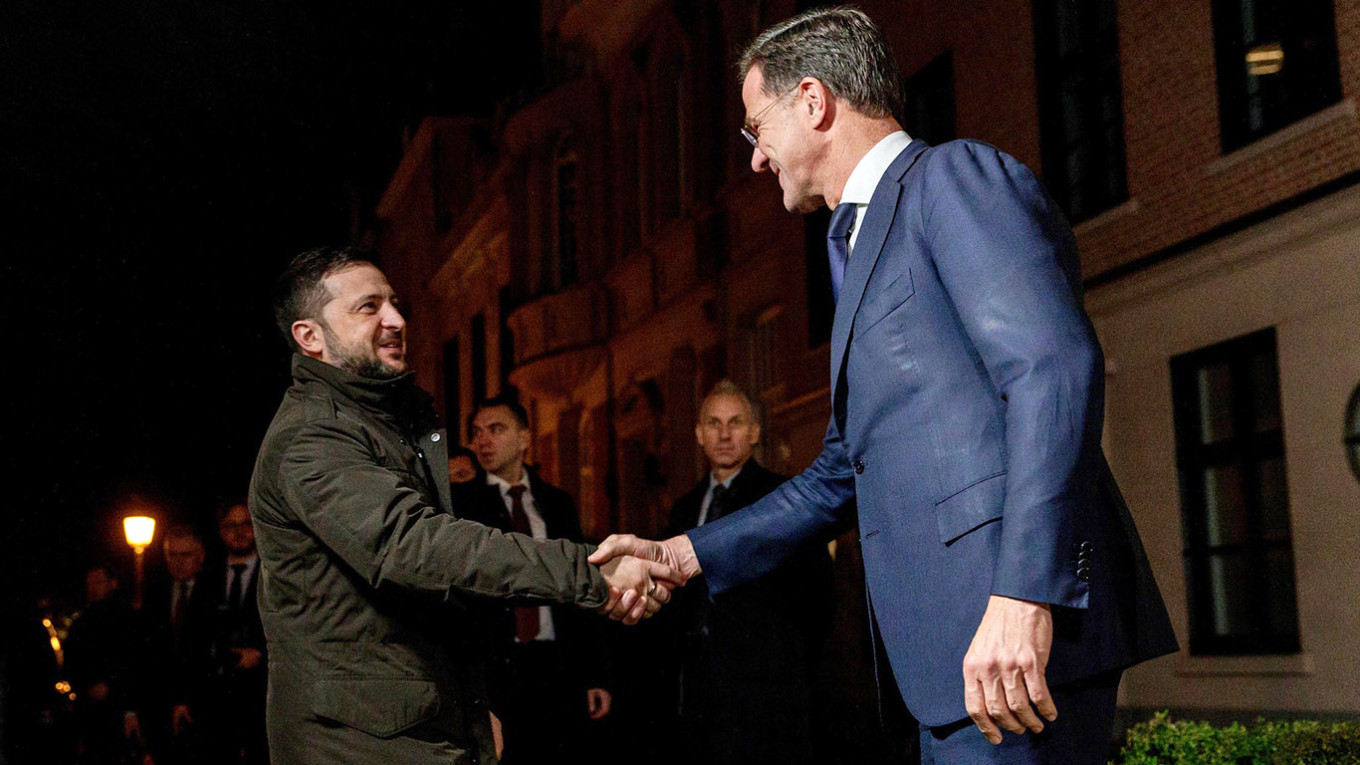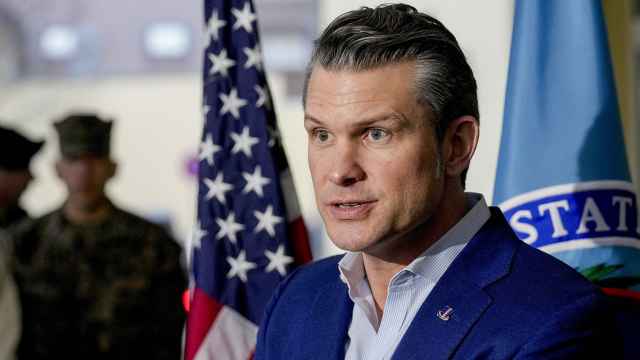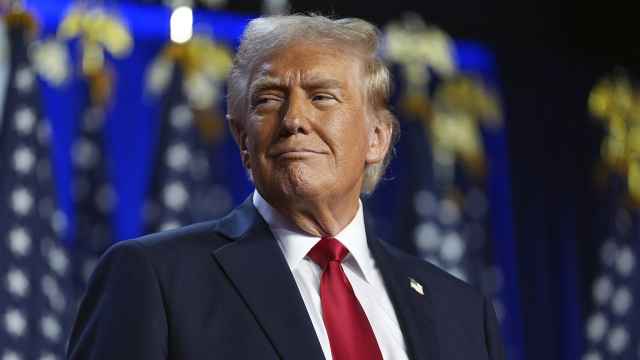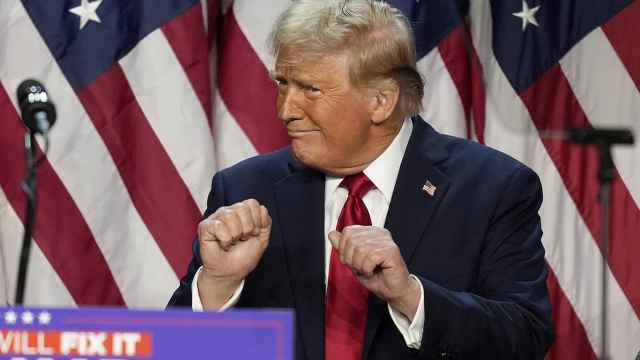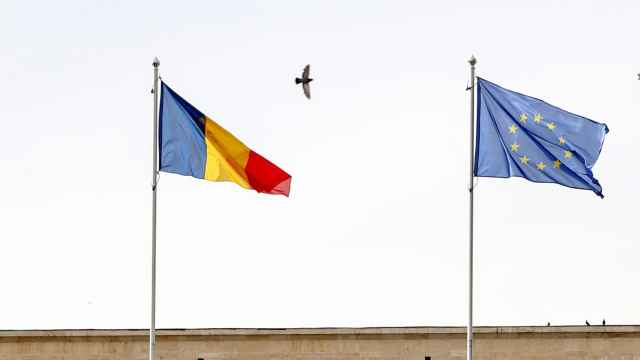BRUSSELS — NATO faces a pivotal week as the alliance navigates uncertainty over the United States’ commitment to Ukraine and European security under President Donald Trump.
As Russia advances in Ukraine on the eve of the invasion’s third anniversary, NATO is preparing for key meetings that could shape the future of Western military and financial support to Kyiv at its defense ministerial in Brussels and the Munich Security Conference.
“This is quite an important week,” a senior NATO official told The Moscow Times on condition of anonymity. “At the end of this week, maybe we will have a better idea where the U.S. is coming from.”
Trump, known for his “predictable unpredictability” and transactional approach to foreign policy, has stoked unease among Washington’s allies with his criticism of U.S. aid to Ukraine, his repeated claims to Greenland and Canada and his soft rhetoric toward Russia’s Vladimir Putin.
Just over three weeks into Trump’s new term, NATO leaders are watching his administration closely to seek clarity on Washington’s strategy toward its allies and adversaries alike.
The first major test will come on Thursday, when NATO defense ministers convene in Brussels to hold their first meeting with Trump’s new Secretary of Defense Pete Hegseth.
Beyond Brussels, the Munich Security Conference will bring together top U.S. officials including Hegseth, Secretary of State Marco Rubio and Trump’s special envoy for Russia and Ukraine Keith Kellogg.
The conference could either reassure NATO allies that U.S. support for Ukraine remains steadfast or signal that European members must take on a greater share of the burden.
Kellogg plans to gather input from allies on options for ending the war in Ukraine during his visits to Munich and other European capitals this week and is expected to present these options to Trump in the coming weeks, Bloomberg reported Tuesday.
Trump’s Vice President JD Vance will meet with European Commission President Ursula von der Leyen on Wednesday after his meeting with French President Emmanuel Macron at an AI summit in Paris the previous day.
“[U.S. officials] are shaping their view, they are consulting with allies, with Ukrainians, they are hearing from the Baltic states… They are [getting] a lot of input,” the senior NATO official said. “I believe Keith Kellogg will be visiting not only Munich but a number of other stops in Europe. It’s too early to tell.”
While NATO countries are still waiting for the Trump administration to inform them about its approach in detail, Washington has entered intensive talks with Moscow at various levels.
On Tuesday, Trump’s Middle East envoy Steve Witkoff flew to Russia to secure the release of Marc Fogel, an American teacher who had been jailed in Russia since 2021, in what Trump called “an important step” ahead of ending the war in Ukraine.
He said that “not much” was given to Russia in exchange for the U.S. citizen’s release without offering further detail.
The New York Times reported that Trump secretly tasked Witkoff with opening a negotiation channel with Moscow to explore options for ending the war.
Fox News reported, without citing sources, that Witkoff met with Putin for three hours in Moscow on Tuesday. When asked by journalists about the report, the Kremlin said it had “nothing to say” on the matter.
NATO officials insist that any resolution must not come at the cost of Ukraine’s sovereignty.
“When President Trump says we should be focused on ending this war, this is very much in line with what we would like to see — we are not in the business of extending this war, we are in the business of ending this war,” the senior NATO official told The Moscow Times. “But we want to end it not on the basis of a Ukrainian surrender. That is not the deal. The deal is not to end the war ASAP at the cost of Ukraine being eliminated as an independent nation.”
“The United States plays a crucial role in NATO, and we are aware that consultations between Washington and Moscow are underway. However, defending Ukraine remains our top priority,” a European diplomat told The Moscow Times on condition of anonymity.
Moscow, meanwhile, is closely monitoring NATO’s internal discussions and the new U.S. administration’s stance — and making statements seemingly aimed at driving a wedge between Kyiv and its key supporters.
The head of Russia’s SVR spy agency claimed Tuesday that Kyiv and its Western allies are planning attacks on ships in the Baltic Sea and exiled Kremlin critics in an effort to blame Moscow and derail peace talks.
The senior NATO official interviewed by The Moscow Times rejected this claim.
“I think Russia is also waiting to see how the debate in NATO plays out, where the new U.S. administration positions itself,” the official said. “Many in Moscow have speculated that President Trump might go down a certain path. We shall see.”
At the same time, Moscow continues to stand by its hardline demands for peacefully ending its war on Ukraine, including the withdrawal of Ukrainian troops from four regions partially occupied by Moscow as well as a commitment that Kyiv will forgo NATO membership.
Trump’s recent statements expressing ambitions to make Greenland and Canada a part of the U.S. have also raised eyebrows among allies. While Washington and Copenhagen are expected to hold discussions on Arctic security, Denmark remains firm on Greenland, the Nordic country’s autonomous territory.
“In Denmark, the vast majority of people have said Greenland should not become part of the U.S. More importantly, more than 80% of Greenlanders have said they don’t want to become part of the U.S. I haven’t seen a majority of Canadians expressing [a wish to join the U.S. either],” the NATO official said.
In Munich, European leaders will be keen to engage with top U.S. officials like Vice President Vance and Secretary of State Rubio and clarify where Washington stands.
“The U.S. is a very, very important part of the puzzle here because the U.S. is basically the backbone of this alliance, the single logistics ally with the most military capabilities, and ultimately the guarantor of our deterrence and defense,” the official noted.
“The U.S. has been the single largest supporter of military equipment [to Ukraine]. Obviously, the U.S. view on how this conflict can end and how the process should be shaped would be very important,” he said.
As this crucial week unfolds, NATO allies will be seeking answers on whether Washington remains committed to supporting Ukraine or whether European members will need to step up to fill the potential gap left by shifting U.S. priorities.
NATO Secretary General Mark Rutte last month called on members to shift to a “wartime mindset” to face the “long-term” security threats posed by Russia, saying: “We are not ready for what is coming our way in four to five years.”
The anonymous NATO official said the alliance has withstood significant shifts in U.S. foreign policy before and will work to maintain unity.
“If you look at 75 years of NATO history, we have navigated a lot of situations where we had significant political change, where we had significant disagreements among NATO allies about the direction of alliance policy, and we always managed to come together. That’s exactly what we need to do now,” the NATO official said.
A Message from The Moscow Times:
Dear readers,
We are facing unprecedented challenges. Russia's Prosecutor General's Office has designated The Moscow Times as an "undesirable" organization, criminalizing our work and putting our staff at risk of prosecution. This follows our earlier unjust labeling as a "foreign agent."
These actions are direct attempts to silence independent journalism in Russia. The authorities claim our work "discredits the decisions of the Russian leadership." We see things differently: we strive to provide accurate, unbiased reporting on Russia.
We, the journalists of The Moscow Times, refuse to be silenced. But to continue our work, we need your help.
Your support, no matter how small, makes a world of difference. If you can, please support us monthly starting from just $2. It's quick to set up, and every contribution makes a significant impact.
By supporting The Moscow Times, you're defending open, independent journalism in the face of repression. Thank you for standing with us.
Remind me later.



